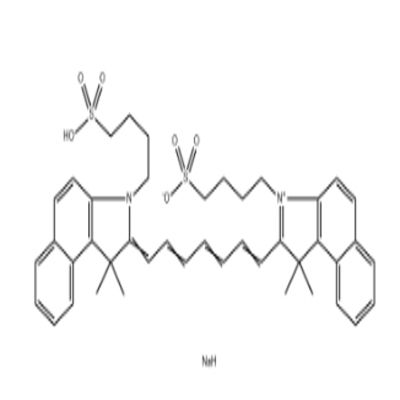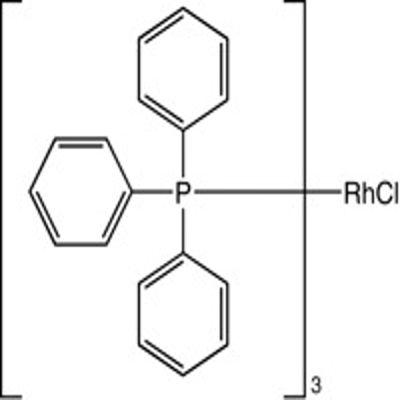Pegatinib, a powerful FGFR inhibitor of Incyte, is under review in Europe
-
Last Update: 2020-01-08
-
Source: Internet
-
Author: User
Search more information of high quality chemicals, good prices and reliable suppliers, visit
www.echemi.com
Incyte recently announced that the European Drug Administration (EMA) has accepted the marketing authorization application (MAA) for the targeted anticancer drug pemigatinib, which is a selective fibroblast growth factor receptor (FGFR) inhibitor for the treatment of recurrent or refractory disease, carrying FGFR2 fusion or rearrangement, locally advanced or metastatic cholangiocarcinoma (chorangioca) after receiving at least one systemic therapy Rcinoma) adult patients EMA has launched the formal review process of MAA, and if approved, pemigatinib will become the first targeted therapy for cholangiocarcinoma in Europe In the United States, the FDA accepted pemigatinib's new drug application in November last year and granted priority review The MAA of pemigatinib is based on data from the light-202 study (nct02924376) This is an open label, multicenter phase II study that is evaluating the efficacy and safety of pemigatinib in previously treated adult patients with locally advanced or metastatic cholangiocarcinoma These patients were included in one of three cohorts according to FGF / FGFR status: cohort a (FGFR2 fusion or rearrangement), cohort B (other FGF / FGFR gene changes), and cohort C (no FGF / FGFR gene changes) In the study, all patients were treated with pemigatinib once a day, 13.5mg once a day, 21 days as a cycle (2 weeks medication / 1 week discontinuation), until the progression of radiologic diseases or unacceptable toxicity The primary end point of the study was the overall response rate (ORR) of cohort a, which was independently evaluated according to the criteria for evaluating the efficacy of solid tumors (RECIST v1.1) Secondary endpoints included orr in cohort B, a + B, C, PFS, OS, DOR, DCR, and safety in all cohorts The results were presented at the European Society of Oncology (ESMO) meeting in late September 2019 The data showed that the median follow-up period was 15 months Based on the results of independent Central Radiology review, the orr of cohort a was 36% (95% CI: 27-45), the median PFS was 6.9 months (95% CI: 6.2-9.6), the median OS was 21.1 months (95% CI: 14.8-ne), the median dor was 7.5 months (95% CI: 5.7-14.5), and the DCR was 82% (95% CI: 74-89) In this study, pemigatinib was generally well tolerated The most common treatment emergent adverse event (teae) was hyperphosphatemia of grade 1 or 2 (60%), which could be managed by a low phosphorus diet, phosphate binders and diuretics, dose reduction or interruption The most common level 3 teae was hypophosphatemia (12%), none of which was considered clinically significant or serious, and none of which resulted in dose reduction or discontinuation 4% of the patients (≥ grade 3, 1%) had serous retinal detachment and none had clinical sequelae Pemigatinib (FGFR inhibitor, picture source: medchemexpress CN) Cholangiocarcinoma is a rare type of cholangiocarcinoma Intrahepatic cholangiocarcinoma (ICC) occurs in the intrahepatic bile duct, and extrahepatic cholangiocarcinoma occurs in the extrahepatic bile duct Patients with cholangiocarcinoma are usually in the late or late stage of poor prognosis at the time of diagnosis The incidence rate of cholangiocarcinoma varies from region to region, and 0.4-1.8/100000 in Europe FGFR2 fusion or rearrangement occurred almost exclusively in ICC, and was observed in 10-16% of patients Fibroblast growth factor receptor (FGFR) plays an important role in tumor cell proliferation, survival, migration and angiogenesis Fusion, rearrangement, translocation and gene amplification in FGFR are closely related to the occurrence and development of various tumors Pemigatinib is a powerful, selective and oral small molecule inhibitor of FGFR isomer 1, 2 and 3 It has been proved that cancer cells with FGFR gene change have selective pharmacological activity in preclinical studies.
This article is an English version of an article which is originally in the Chinese language on echemi.com and is provided for information purposes only.
This website makes no representation or warranty of any kind, either expressed or implied, as to the accuracy, completeness ownership or reliability of
the article or any translations thereof. If you have any concerns or complaints relating to the article, please send an email, providing a detailed
description of the concern or complaint, to
service@echemi.com. A staff member will contact you within 5 working days. Once verified, infringing content
will be removed immediately.







